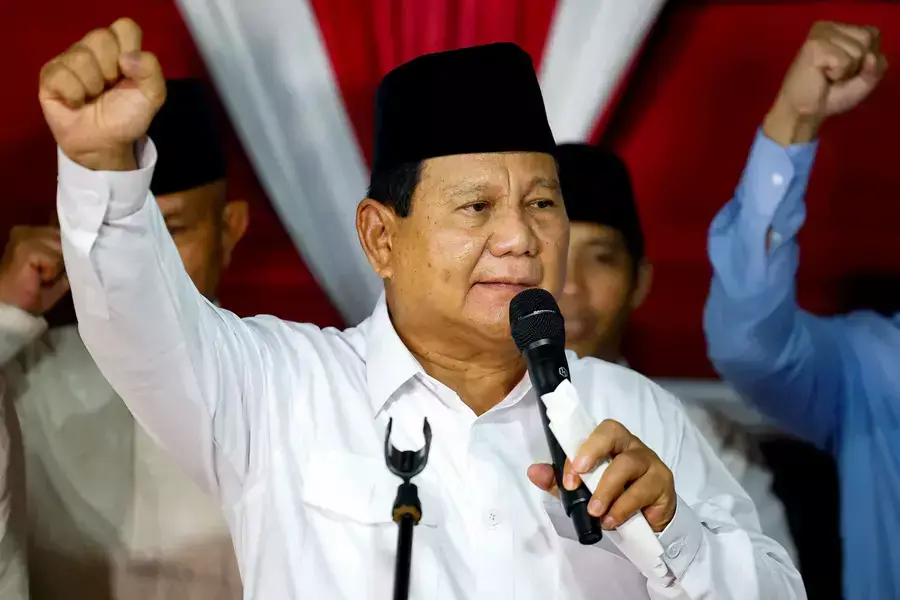Five Things to Expect from a Prabowo Presidency

Indonesia’s Election Commission has apparently confirmed Prabowo Subianto’s victory in the Indonesian presidential election’s first round, giving him a majority and avoiding any runoff. His challengers are contesting the results, but they have little chance of succeeding, so Prabowo will be Indonesia’s next president.
Given his ascendance, here are five brief developments to watch out for in a Prabowo presidency:
More on:
- As noted before, Prabowo had historically disdained Indonesia’s democratic development and, in prior campaigns, had portrayed himself as a strongman who would solve Indonesia’s problems himself. Yet, on the campaign trail, he portrayed himself as radically changed. Which Prabowo will show up as president?
- How closely Prabowo adheres to the politics and policies of his predecessor, Joko Widodo, commonly referred to as Jokowi. He essentially ran as Jokowi’s successor and has Jokowi’s son as his vice president. But in office, Prabowo is likely to quickly shed many of his pretensions that he is simply a third term of Jokowi. While he may keep many of Jokowi’s popular social welfare and development programs and even expand them, Jokowi’s influence over him will wane considerably now, especially in areas like foreign policy, where Prabowo has much more experience than Jokowi anyway.
- The role of the army. Under Jokowi, the army had already been allowed to take a much broader role in Indonesian domestic policy than at any time since the Suharto era, a dangerous direction in Indonesian domestic affairs. Prabowo, a man of the army (albeit one fired by the army in the past), is likely to continue Jokowi’s direction and place the armed forces in even more roles in domestic policymaking.
- Prabowo is even more of a resource nationalist than Jokowi, so it will be interesting to watch how he handles Indonesia’s critical nickel sector. Under Jokowi, the country had been very reticent about allowing foreign investors major access to the nickel sector. Although Prabowo wants to court foreign investment, the nickel sector is particularly important, and Prabowo will, even more than Jokowi, likely want to ensure that Indonesia does not just export raw materials but gets more of the value chain out of nickel. Prabowo will almost certainly ensure that nickel is mined and processed in Indonesia.
- How will Prabowo deal with ASEAN and in particular, its new member, Timor Leste? It would be shocking if even a man as resilient and forgiving as Jose Ramos Horta did not blanch at the fact of dealing with Prabowo at ASEAN meetings, even though (before Prabowo) Indonesia was a supporter of Timor-Leste’s membership in ASEAN.
More on:
 Online Store
Online Store